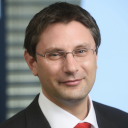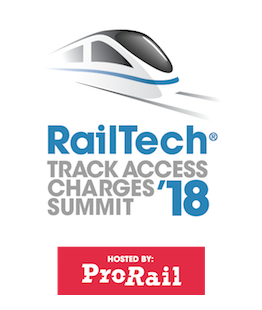 Dr. Ulrich Puz
Dr. Ulrich Puz
Managing director of Schieneninfrastruktur-Dienstleistungsgesellschaft mbH
Presentation title:
Open access and open rail markets: How to provide integrated public rail passenger services
Summary:
Introduction
- Development of the railway market in Austria
The Austrian rail market, open since 2001, is growing. A number of railway undertakings (RU) contribute to the Austrian modal split in rail freight transport being the highest in the EU. And statistically Austrians like to use public rail passenger transport more than all other EU citizens. - Structure, organisation and financing of public rail infrastructure in Austria
From 2007 to 2027, Austrian rail infrastructure is extended and enhanced by means of an investment programme of about 2 billion EUR per year. The main targets of these investments in rail infrastructure are the reduction of travel-time and the facilitation of integrated timetables in public rail passenger transport. - Structure, organisation and financing of public rail passenger transport in Austria
Public passenger trains are running a total of 100 million kilometres per year. 80 million train kilometres are not solely financed by passenger fees. Therefore, a publicly financed amount of 800 million EUR per year is needed to ensure 80% of public rail passenger transport under PSO-regime. - Structure, organisation and financing of rail freight transport in Austria
The modal split in rail freight is about 30% – the highest in the EU. About 60% of the rail freight in Austria is produced with single wagon loads and combined cargo. The costs of rail transport in single wagon loads and combined cargo are higher than comparable costs for trucks. Therefore, Austria’s authorities subsidise rail freight transport with 100 million EUR per year, to enable RUs to produce single wagon loads and combined cargo at competitive prices.
Goals & strategies in public rail transport
- How to raise the share of public rail passenger transport
One of the main targets of Austria’s transport policy is to raise the share of public rail passenger transport to consequently reduce pollutant emissions. Therefore, Austrian authorities are willing to invest in rail infrastructure and in further publicly financed rail passenger transport under PSO-regime (see above point A). Short travel-times, short intervals, synchronised timetables and cheap tickets should make public passenger transport more attractive in order to have people change from individual motorised traffic to public transport. - Open access and integrated timetables
To ensure integrated and synchronised timetables for the entire public rail passenger services in Austria, SCHIG mbH will tender suitable PSO-public service contracts as Austrian central assignment body. Still PSO-timetables can be in conflict with open access-timetables. As a result, expensive capacities in infrastructure cannot be used for PSO-financed integrated public rail passenger services. - Open access and integrated tariffs
Open access is operating on lines with high demand for passenger transport. To be connected with and able to use these lines is also very important for passengers using PSO-passenger transports. RUs under PSO-public service contracts are engaged to offer cheap tickets, on the other hand PSO-tickets are not accepted by open access-RUs. Again, expensive capacities of infrastructure used by open access-RUs are not properly useable for PSO-passengers.
Questions and conclusions
- What is the relationship between publicly financed infrastructures on the one hand and PSO-financed and open access rail services on the other?
- Are the regulations of TAC able to set the correct incentives in order to secure an efficient and cost-saving use of rail infrastructure?
- Are the regulations of TAC able to set the correct incentives in order to secure an efficient and functional enhancement of rail infrastructure?
- Are the regulations of TAC able to set the correct incentives in order to integrate timetables and tariffs between PSO-financed and open access rail services?
Speaker biography:
After graduating from Higher Technical Education Institute (HTL) for electrical engineering and Vienna University of Natural Resources and Life Sciences (BOKU), where he studied Civil Engineering and Water Management, Ulrich Puz started his professional career in 2004 as research assistant at BOKU’s Department of Civil Engineering and Natural Hazards. Then he changed to the Engineering Office iC consulenten ZT GmbH. From 2008 on, he worked for ASFINAG as auditor for among other things consulting services in planning and construction projects. In May 2010, Mr. Puz was appointed managing director of SCHIG mbH. From 2011 on, he has been sole managing director and he was reappointed in this function in May 2015. Mr. Puz wrote his doctoral thesis on “Safety systems for tunnels under fire load – safety systems and concrete behaviour under temperature load for tunnel systems“, he is consult-ing engineer for Civil Engineering and Water Management and acquired an Executive MBA by writing his master thesis “The liberalisation of the European railway sector and the effects on financing the core network operator in Austria“ at Vienna University of Economics and Business Administration in 2013.
